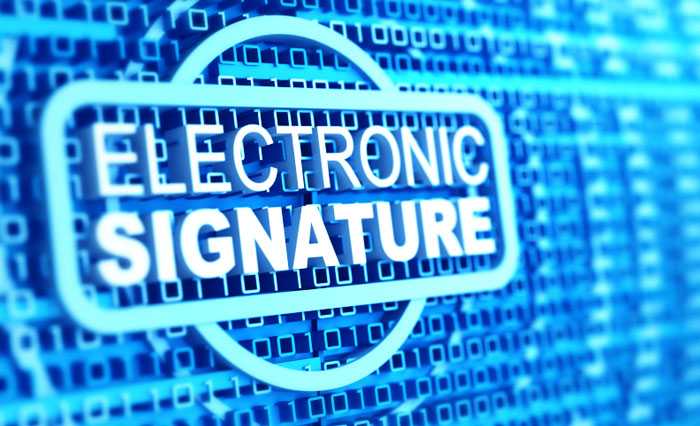Electronic Signatures, How Valid Are They?
There is no escaping the rapid advance of technology.
People are interacting in ways that would have been completely alien to businesses and their employees just decades ago.
Keeping in step with technological innovation, people are always seeking easier and faster ways to carry out their business.
Doing business with people all over the country leaves little room for physical documents, or the signatures that are commonly used on them.
The electronic signature is commonplace now, but there is still concern about just how valid they are. Would they be legally binding in court, for example?
According to the law in Australia, electronic signatures are, in fact, considered valid for signing agreements.
Trouble arises when it becomes difficult to identify who actually signed a contract, or whether they were aware of the implications of signing.
There are special tools that can identify the parties, and these can help to reduce the risk of a signature being declared invalid in court.
Overview of Electronic Contracts
All contracts, both physical and electronic, must meet certain requirements.
Signing parties must be aware that they are entering into a legally binding contract, that they are accepting an offer, and must be given a chance to benefit from the exchange.
This could include something as simple as being paid for a promised service. These are the standard guidelines of a contract, and they do not change in the digital world.
A digital contract needs to be stored in a way that it can be accessed by the parties after being executed. And each party much agree to using an electronic agreement, as opposed to a traditional one of ink and paper.
Legally, the originator of the agreement is bound by the contract, provided that they consented to sending it.
This becomes a problem when it is hard for each party to verify the identity of the other, and confirm who sent the digital agreement.
Electronic Signatures versus Digital Signatures
Electronic signatures must be accompanied with the names of the signees. The method of signing also needs to be as reliable as the format of the electronic document itself.
Even when all of the above requirements are met, it’s hard to prove that someone signed a document, unless there is a witness.
Of course, since parties are not generally in the same room, or even the same country, there is the risk that the document will be changed after it is signed.
A true “digital signature” is actually a specific type of signature. They use technology that can be protected with digital security measures, and they’re locked to a specific person. An “electronic signature” is any type of text that is used to sign a document.
A true digital signature is verifiable, and linked to specific metadata that increases its validity. They are used as a type of electronic identity, and considered much more reliable than just signing electronically.
If you plan to do business that involves the signing of digital documents, please take note of the issues outlined above.
Having a signature on a document might not be enough to prove its validity. A proper digital signature is much safer.

